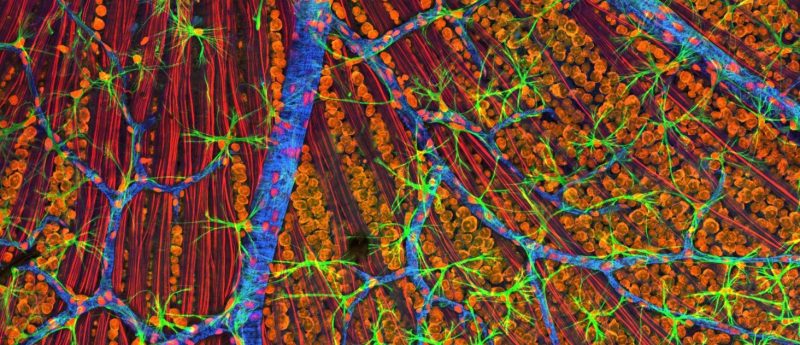Hope for stem cell therapy in macular degeneration

Retinal pigment epithelium cells derived from iPSCs observed to be tolerated by the immune systems of humanized mice
An international collaboration led by researchers from University California, San Diego (UC San Diego; CA, USA) has observed iPSCs derived from individual’s own cells to be able to differentiate into various types of functional cells with different fates of immune rejection. It was also observed that these cells might not be rejected by the immune system turned into retinal pigment epithelium cells, destined for the eye.
This research was headed by Yang Xu (UC San Diego), known for his 2011 discovery that although iPSCs are derived from an individual’s own cells, abnormal gene expression can cause rejection of iPSC-derived cells by the immune system. This could be a major limitation to the safe use of iPSCs, which are regarded as attractive candidates for stem cell therapies because they can be differentiated into a variety of cell types, are not derived from embryonic tissue and are not subject to restrictions that limit the use of human embryonic stem cells.
In this study, researchers developed a variety of cell types from human iPSCs and subsequently tested immune responses in humanized mice with the immune system of the same individual. Smooth muscle cells were identified to be highly immunogenic and strongly rejected by the immune system. Retinal pigment epithelial cells, however, were tolerated by the immune system, even when transplanted into parts of the body known to provide the environment for robust immune rejection. It was demonstrated that this differential immunogenicity is a result of varying immunogenic antigen expression.

It is hoped that this finding may aid in the future development of human stem cell therapies to treat macular degeneration, in addition to providing optimism for the future of stem cell therapy. Summarizing the group’s findings, Xu stated: “Immune rejection is a major challenge for stem cell therapy. Our finding of the lack of immune rejection of human iPSC-derived retinal pigment epithelium cells supports the feasibility of using these cells for treating macular degeneration. However, the inflammatory environment associated with macular degeneration could be an additional hurdle to be overcome for the stem cell therapy to be successful.”
— Written by Hannah Wilson
Source: Zhao T, Zhang Z, Westenskow P et al. Humanized mice reveal differential immunogenicity of cells derived from autologous induced pluripotent stem cells. Cell Stem Cell (2015) (In Press); UC San Diego Press Release: http://ucsdnews.ucsd.edu/pressrelease/study_provides_hope_for_some_human_stem_cell_therapies